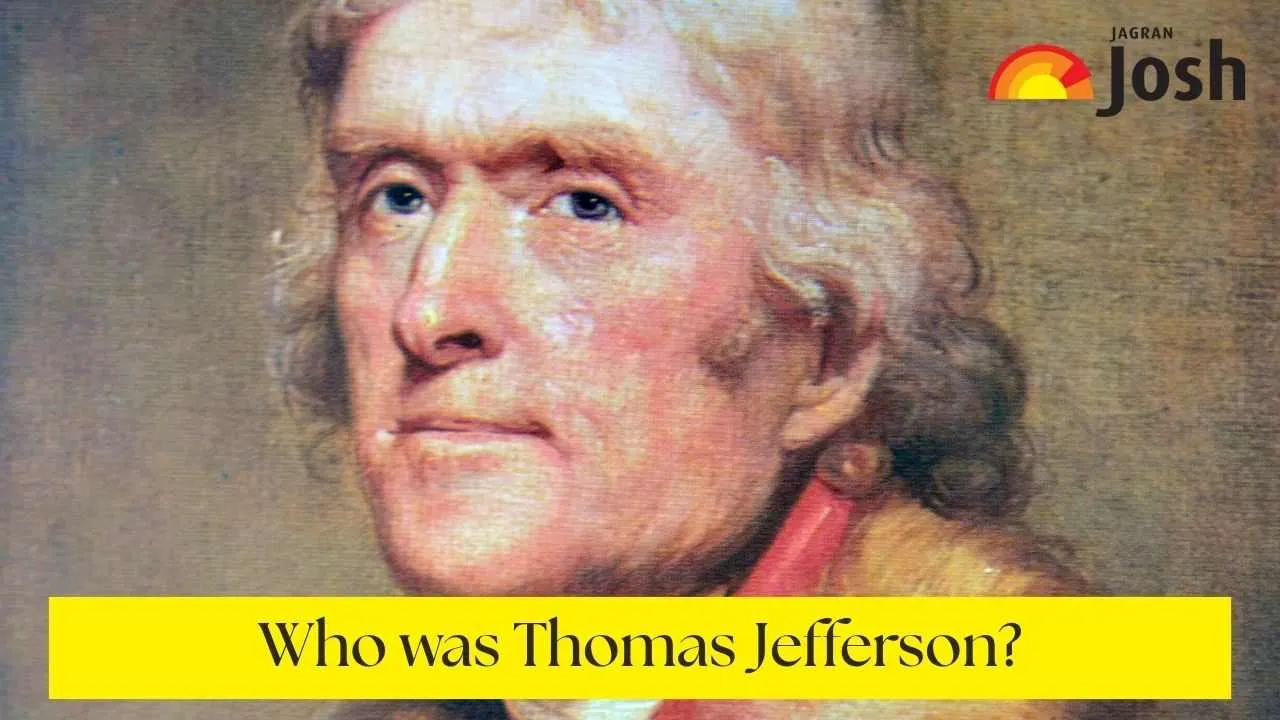Thomas Jefferson was one of the Founding Fathers of the US and the third President of the United States. Born on April 13, 1743, he is best known as the primary author of the Declaration of Independence. His views on liberty, democracy, and the role of the citizen were among the many revolutionary contributions he made to the development of the United States. He served as an inspiration for the 13 Colonies' historic struggle for independence, which ultimately led to the founding of the United States as a free and independent nation. Jefferson had a remarkable public career because of his early life and broad intelligence.
Check Out:Who was James Madison? Check His Early Life, Career, and Presidency!
Early Life
Thomas Jefferson was born on April 13, 1743, in Shadwell, Virginia. He grew up on a plantation, but his interests stretched far beyond farming. His father, Peter Jefferson, was a farmer and surveyor of land, while his mother was Jane Randolph. In 1745, Peter moved his family to a place called Tuckahoe Plantation. This happened because the owner, William Randolph III, passed away and asked Peter to take care of his children. The Jefferson family then moved back to their home at Shadwell sometime before October 1753. Growing up, he was a keen student who always had a desire to learn.
Education
He attended the College of William & Mary in Virginia, where he studied Law, and he graduated in the year 1762. After university, he was admitted to the Virginia Bar. There, he mastered a deep understanding of legal principles and political thought. He was chosen to be part of Virginia's House of Burgesses (a type of local government) in 1769. He served there until 1774, when the British government closed it down. Thomas Jefferson was a true "Enlightenment man," with a wide-ranging education that shaped his views on governance and human rights. He had a passion for architecture, science, languages, and music.
Political Career
He started his career in public service early after being elected to Virginia's House of Burgesses. Later, he represented Virginia in the Continental Congress. It was here, in 1776, that he was chosen to draft the Declaration of Independence. His eloquent words proclaimed that "all men are created equal" and possess unalienable rights to "Life, Liberty, and the pursuit of Happiness," which became foundational to the American ideal.
After the Revolution, Thomas Jefferson served as Governor of Virginia, where he voiced his opinions for reforms such as religious freedom. He then spent several years in France as the U.S. Minister and witnessed the beginnings of the French Revolution. He also became the first Secretary of State from March 22, 1790, to December 31, 1793, under President George Washington. He even led the formation of the Democratic-Republican Party, which favoured states' rights and an agrarian society. He later served as Vice President under John Adams.
Presidency
In 1801, Thomas Jefferson became the third President of the United States. On March 4, 1801, Thomas Jefferson officially became the President. Chief Justice John Marshall performed the ceremony at the new Capitol building in Washington, D.C. His presidency marked a significant shift towards democratic ideals and a more limited federal government. He served as the president of the US between 1801-1809. His most celebrated achievement as President was the Louisiana Purchase in 1803. To explore these new lands, Jefferson commissioned the famous Lewis and Clark Expedition. He also faced challenges in foreign policy, particularly concerning trade and maritime rights, which led to the Embargo Act.
Check Out:The American Founding Fathers and 10 Fascinating Facts About Them
Legacy
Thomas Jefferson's legacy is immense and has a lasting impact, as he is forever associated with the principles of liberty, self-governance, and individual rights. He famously founded the University of Virginia, which is a testament to his belief in education's power. Moreover, his emphasis on an agrarian republic and limited government influenced generations of American politicians.
However, his legacy is also deeply complicated by his lifelong ownership of slaves. Despite writing about human equality, he did not free most of his enslaved people during his lifetime. This enduring contradiction remains a central point of discussion when studying his impact. Nevertheless, his contributions to the founding of the U.S. and its core democratic ideals ensure his place as one of the nation's most influential figures.

Comments
All Comments (0)
Join the conversation